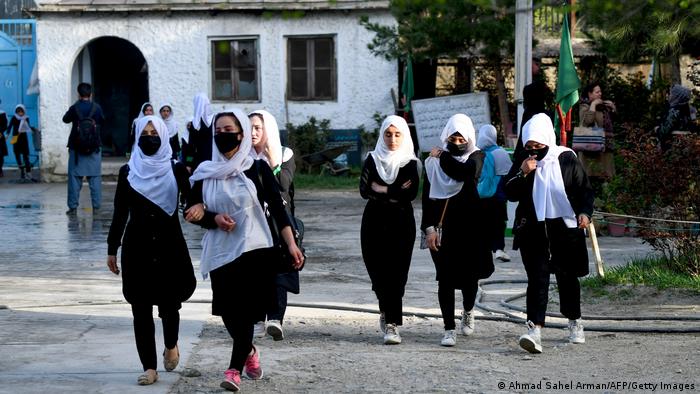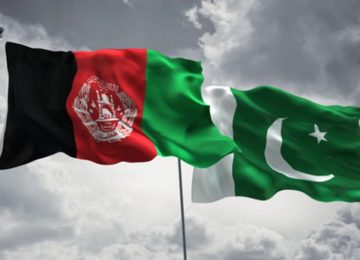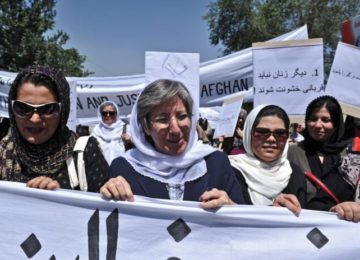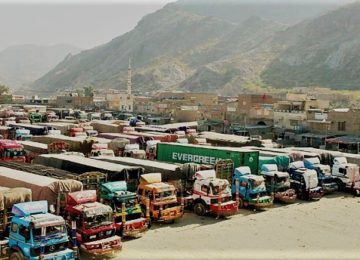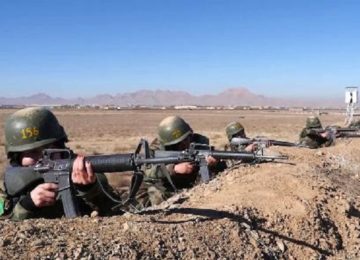The interim regime of the Afghan Taliban on Wednesday surprised all and sundry by sending girls back from school. They had previously announced to reopen schools for girls on March 23, 2022. The international community had welcomed the move, including the UN chief, Antonio Guterres, who said, “I welcome the plan announced by the Taliban to reopen the schools for girls and boys on March 22, 2022, which must now be approved and implemented. All doors must be open for girls and boys to have an education and reach their full potential.”
But on March 23, 2022, the Taliban decision dashed the little hopes that had risen with their promise to reopen schools. It seems that girls’ education is back to where it was on August 15, when the militia seized power in Kabul
Many on social media have posted pictures of schools with no female students while some report that many older girls were sent back to their homes by the school heads and teachers upon receiving orders from the authorities. Bakhtar, a government news agency in Afghanistan reports that IEA has suspended secondary and higher secondary classes for girls until further notice reason being the government is yet to decide on the dress code for older females under the Sharia law and Afghan tradition.
The delay and apparent reluctance of the Taliban in normalizing girls’ education poses a societal and developmental detriment to the Afghan society and also amounts to the dismay of the international community, hence further impeding the recognition of the de facto government.
Another recent example of the Taliban’s attempt to hijack civil liberties is the ban on the broadcasting of Voice of America (VOA) and British Broadcasting Company (BBC) news channels. “The content restrictions that the Taliban are attempting to impose are antithetical to freedom of expression that the people of Afghanistan deserve,” said Yolanda Lόpez, the Acting VOA Director. Media experts and critics around the world have denounced this move by the Taliban. Tarik Kafala, the Head of Languages at the BBC, said, “The BBC’s TV news bulletins in Pashto, Persian, and Uzbek have been taken off air in Afghanistan after the Taliban ordered our TV partners to remove international broadcasters from the airwaves. This is a worrying development at a time of uncertainty and turbulence for the people of Afghanistan. More than six million Afghans consume the BBC’s news every week and it was crucial that they not be denied access to it.”
While restricting freedom of speech and education for the citizens, the Taliban are attending high-level meetings with officials from around the world, trying to convince the international community to recognize them. China, for instance, has recently hosted an ‘Extended Troika’ on Afghanistan on March 30-31, 2022 at Tunxi in East China’s Anhui Province. The summit was led by the special envoys of China, Russia, Pakistan, and the US. President Xi Jinping spoke to the Extended Troika, i.e., the third Foreign Ministers’ Meeting among the Neighboring Countries of Afghanistan, in a written address saying:
Afghanistan is a common neighbor and partner of all participating countries. We form a community with a shared future linked by the same mountains and rivers that would rise and fall together… China always respects Afghanistan’s sovereignty, independence, and territorial integrity, and has committed to supporting its pursuit of peace, stability, and development.”
China has not recognized the Taliban government yet and avoids harsh criticism of their actions, but is keen on continuing efforts that lead to a stable and prosperous future for Afghanistan.
The international community is extending its ties with the Afghan Taliban so the country can have some stability and Afghanistan is not stranded, even the UN has established its formal presence. But the Taliban government remains unrecognized as their recognition is chiefly contingent upon ensuring human rights in the country. Empowering young girls and women through education is one of the ways the Taliban could be formally accepted by the world.
The delay and the apparent reluctance of the Taliban in normalizing girls’ education and basic freedom of expression not only poses a societal and developmental detriment to the Afghan society but also amounts to the dismay of the international community, hence further impeding the recognition of the de facto government.
On the other hand, the delay might as well be justified to some extent as there is a massive communication gap between the senior and ‘urban’ Taliban leadership, and the ones at the lower ranks and in rural areas. The Taliban leadership is under international pressure to retreat women’s and human rights and the world is closely watching them. But, many in the rural provinces do not even realize that girls’ education is integral to the nation’s progress and that it is a basic human right.
The responsibility lies on the shoulders of the Taliban leadership. They are to decide how they can mobilize the officials and stakeholders at the lower ranks and plan to strike a balance by implementing Sharia law in the country (which in no way forbids females from acquiring education) and ensuring basic civil liberties which the people of Afghanistan as well as the international community demands from them. One thing is certain now: these are not the 1990s; and Afghanistan, though a hotbed of tribalism and ethnic and cultural rifts, holds a crucial place on the map. The Taliban can indeed create and manifest possibilities of a peaceful, inclusive, and stable Afghanistan without disregarding their cultural milieu.
About the author: Elsa Imdad is a USG Alumna. She holds a bachelors in modern languages with an English major and Spanish minor. She has previously been part of American Spaces in Pakistan and now works as a Project Coordinator at the Center for Research and Security Studies. She is also a contributor to Matrix Magazine. Her interests include public diplomacy, international relations, language teaching, peace and conflict resolution, capacity building of marginalized groups, etc.
Courtesy: Matrix



